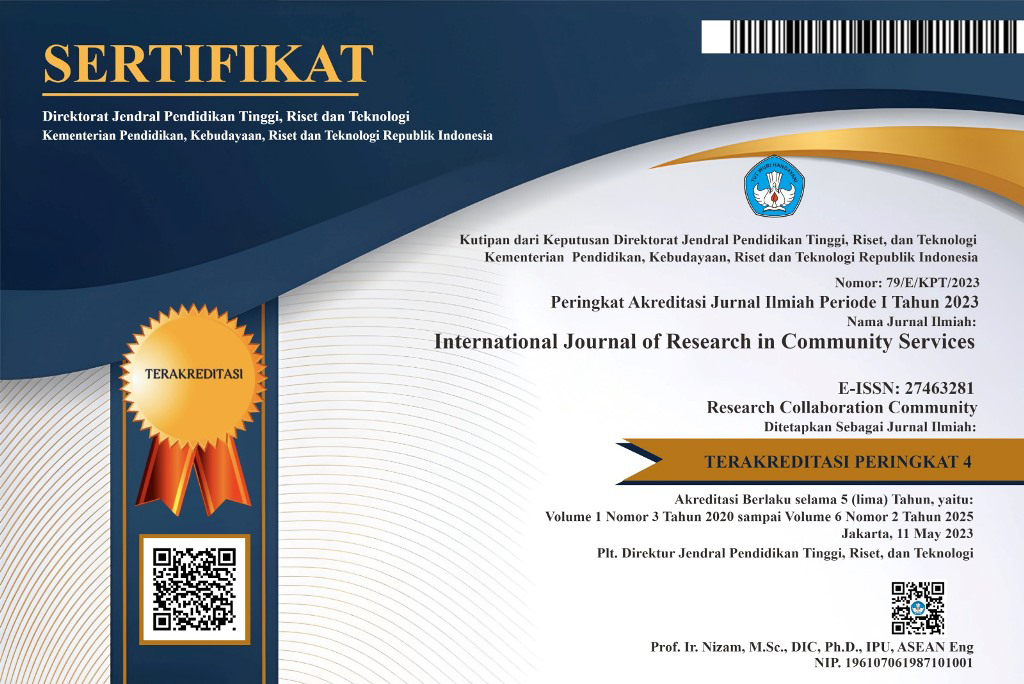Health secrets hidden in guava leaves: Guava tea, a delicious and natural solution to treat diarrhea in children!
Abstract
This study aims to increase public knowledge about the processing of guava leaves as herbal medicine to treat diarrhea. Prior to counseling and training, the results of the pretest showed that most of the participants (70.5%) had known the utilization and processing of guava leaves as herbal medicine. After attending the training, participants were given a post-test questionnaire to measure the increase in their knowledge.
The results showed that there was a significant increase in the participants' knowledge after attending the training. The knowledge percentage increased from 70.5% to 89.0%, representing an increase of 18.5%. This training provides information on how to process guava leaves into herbal medicines that are effective in treating diarrhea.
Some of the processing methods taught in the training include making guava leaf tea, guava leaf extract, and decoction of guava leaves. Participants were also given knowledge about the active ingredients in guava leaves, such as quercetin, which has an anti-diarrhea effect.
This study showed that the counseling and training program was effective in increasing participants' knowledge about processing guava leaves as a herbal medicine to treat diarrhea. With the knowledge gained, it is hoped that the community can properly process guava leaves and use them effectively in maintaining health and treating diarrhea with simple medication. This program also empowers garden plants in the environment around the village as an easily accessible source of herbal medicines.Keywords
Full Text:
PDFReferences
Akila, B., Vijayalakshmi, R., Hemalatha, G., & Arunkumar, R. (2018). Development and evaluation of functional property of guava leaf based herbal tea. Journal of Pharmacognosy and Phytochemistry, 7(3), 3036-3039.
Bultman, W. A., & De Vries, A. (2018). Gastro-enteritis and ileus in two children in Suriname: the multiple effects of Guava leaves. Infectious Diseases and Tropical Medicine, 4(2), e468.
Chassagne, F., Butaud, J. F., Torrente, F., Conte, E., Ho, R., & Raharivelomanana, P. (2022). Polynesian medicine used to treat diarrhea and ciguatera: An ethnobotanical survey in six islands from French Polynesia. Journal of Ethnopharmacology, 292, 115186.
Deguchi, Y., & Miyazaki, K. (2010). Anti-hyperglycemic and anti-hyperlipidemic effects of guava leaf extract. Nutrition & metabolism, 7(1), 1-10.
Farhana, J. A., Hossain, M. F., & Mowlah, A. (2017). Antibacterial effects of guava (Psidium guajava L.) extracts against food borne pathogens. Int. J. Nutr. Food Sci, 6, 1-5.
Fratiwi, Y. (2015). The potential of guava leaf (Psidium guajava L.) for diarrhea. Jurnal Majority, 4(1).
Gonçalves, F. A., Andrade Neto, M., Bezerra, J. N., Macrae, A., Sousa, O. V. D., Fonteles-Filho, A. A., & Vieira, R. H. (2008). Antibacterial activity of GUAVA, Psidium guajava Linnaeus, leaf extracts on diarrhea-causing enteric bacteria isolated from Seabob shrimp, Xiphopenaeus kroyeri (Heller). Revista do Instituto de Medicina Tropical de São Paulo, 50, 11-15.
Joseph, B., & Priya, M. (2011). Review on nutritional, medicinal and pharmacological properties of guava (Psidium guajava Linn.). International Journal of pharma and bio sciences, 2(1), 53-69.
Ojewole, J. A., Awe, E. O., & Chiwororo, W. D. (2008). Antidiarrhoeal activity of Psidium guajava Linn.(Myrtaceae) leaf aqueous extract in rodents. Journal of Smooth Muscle Research, 44(6), 195-207.
Sriwilaijaroen, N., Fukumoto, S., Kumagai, K., Hiramatsu, H., Odagiri, T., Tashiro, M., & Suzuki, Y. (2012). Antiviral effects of Psidium guajava Linn.(guava) tea on the growth of clinical isolated H1N1 viruses: Its role in viral hemagglutination and neuraminidase inhibition. Antiviral research, 94(2), 139-146.
Takahashi, Y., Otsuki, A., Mori, Y., Kawakami, Y., & Ito, H. (2015). Inhibition of leukocyte-type 12-lipoxygenase by guava tea leaves prevents development of atherosclerosis. Food chemistry, 186, 2-5.
Wang, L., Luo, Y., Wu, Y., Liu, Y., & Wu, Z. (2018). Fermentation and complex enzyme hydrolysis for improving the total soluble phenolic contents, flavonoid aglycones contents and bio-activities of guava leaves tea. Food Chemistry, 264, 189-198.
DOI: https://doi.org/10.46336/ijrcs.v4i4.476
Refbacks
- There are currently no refbacks.
Copyright (c) 2023 International Journal of Research in Community Services

This work is licensed under a Creative Commons Attribution 4.0 International License.
Published By:
IJRCS: Jalan Riung Ampuh No. 3, Riung Bandung, Kota Bandung 40295, Jawa Barat, Indonesia
Indexed By:

This work is licensed under a Creative Commons Attribution 4.0 International License.
View My Stats








